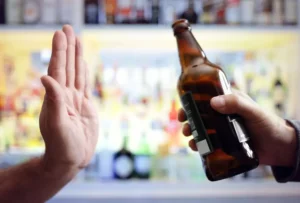4 Ways to Make Amends in Recovery

I can now pay it forward just like many did for me and would like to sponsor/scholarship someone. I would like to thank Living Amends for the chance they gave me with the scholarship to sober living. In many 12-step recovery programs, making amends is an important part of the process. For example, Alcoholic Anonymous (AA)’s ninth step involves making amends to the individuals in your life who were affected by your addiction. The goal of the program is to improve yourself and make strides to be a better person for yourself and your loved ones alike while also remaining sober. Many people think of making amends as simply apologizing for whatever wrongs they did in their using, however an apology is not an amend.
Twelve Steps for Parents: How to Make Amends with Children and Family
- This specificity strengthens the impact of your amends letter and shows that you have thoroughly reflected on your actions.
- To help, we’ve compiled a list of examples of making amends in recovery that deal with ambiguous scenarios.
- Our comprehensive approach includes recovery support services, counseling, and resources for making a sincere apology and working through the amends process.
- Sometimes, symbolic amends are made when direct contact with the person harmed is not feasible or could cause further damage.
- It’s rebuilding trust, correcting a mistake, and improving the relationship with the person you hurt.
Recovery.com combines independent research with expert guidance on addiction and mental health treatment. Our mission is to help everyone find the best path to recovery through the most comprehensive, helpful living amends network of treatment providers worldwide. There are situations where making an amend might cause more harm than good.

Promises to do things differently

When those we’ve hurt are not able or willing to accept our amends, we can still move in a positive general direction by taking intentional steps to be of service to others or making living amends. So, don’t feel bad if you have to deal with more living amends later. How do you decide who gets direct amends, who gets partial amends, and when making living amends is the way to go? Well, your sponsor (or treatment counselor) can help you with the categorization. Step nine, in particular, gets people to Alcoholics Anonymous work through shame and discomfort as they meet people they’ve hurt face-to-face to apologize.
Benefits of an Addiction Treatment Program
- We will suddenly realize that God is doing for us what we could not do for ourselves.
- Those who receive an amends see firsthand that people with use disorders can and do recover, becoming healthy, happy and productive community members.
- It means that you’re not just using your words to show a change, your actions are proving this change as well.
- If approaching the other person opens up old wounds or re-traumatizes them, making amends isn’t advisable.
Instead, making amends means you apologize for what you’ve done and make it right. Similarly, making living amends means you completely change the way you live and remain committed to that lifestyle. Making amends can involve a direct approach or an indirect approach. In direct amends, you see the person you’ve harmed so you can take ownership of what happened. Taking ownership involves accepting responsibility, of course. Also, you need to be prepared to listen to the other person when they explain how you harmed them and what other consequences it had in their lives.
Understanding AA Amends In The Twelve Steps
Go here to begin the process to secure a scholarship to a sober living community. Living Amends recognizes the gap in the healthcare market in terms of insurance coverage for sober living. Most sober living and extended care programs are cash only. To learn whether you’re a candidate for our scholarship program or to speak with one of our experts, please contact Living Amends today or apply for our scholarship.

However, even if you feel extremely motivated to make direct amends, it is advisable to take your time with this step. Make sure that you are comfortable with your progress during recovery and that both you and the other person are ready to engage in the process. After years of being bossy and overbearing, my basic apologies meant little. They don’t always see my hands off approach as sincere kindness, but my motives are pure. In the 12-step program, making these amends is a core part of recovery, helping to rebuild trust and personal accountability, which are key aspects of the 12-step recovery process.

During the second month, the applicant must reapply with second month application about how the grant has impacted their sobriety. I know I said it once, but I’ll say it again – if you are dealing with guilt and you haven’t read the articles above, now is the time. When applying for the scholarship for the second and third months, the applicant must fill out the form below and complete the 2nd and 3rd-month essay to Living Amends. We do not receive any commission or fee that is dependent upon which treatment provider a caller chooses. Avoid initiating a conversation if the other person is distracted or upset by something unrelated. If possible, schedule a time to speak with them in advance to prepare for the conversation.